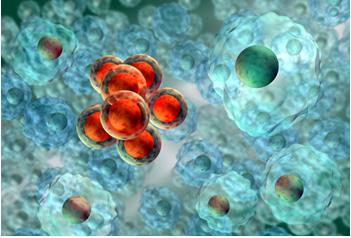

Image from Modern Pregnancy Tips
According to a report provided by ReLife International Medical Center, premature ovarian failure (POF) is an illness seen in women under 40 years old who suffer from amenorrhea. Their blood level FSH stays over 40IU/L, with E2 under the level of 100pmol/L and P under the level of 2nmol/L. Symptoms may appear to be similar to the emergence of menopause, such as anxiety, depression, irritability, varying degrees of hot flashes and sweat, vaginal dryness, decreased libido, infertility and so on. POF is a complex etiological disease, making it an intractable disorder.
Most of the estrogen within the female body is secreted by the follicle cells of the ovaries. Premature ovarian failure leads to follicle development stagnation, resulting in reduction of follicles. Currently, treatment methods mainly use supplementary estrogen, which is only a temporary solution. As long-term application may cause a series of side effects such as malignant transformation, people are often looking for a permanent cure with no side effects.
Stem cell therapy brings hope for patients with premature ovarian failure. Stem cells can not only repair the tissue cells, but also regulate the immune function. Stem cell tends to reach the impaired tissues and organs, nourish and repair the lesion ovary cells in order to fulfill its recovery purpose. This is the so-called cells regeneration treatment for premature ovarian failure. Since many studies have shown that traditional Chinese medicine can improve the overall condition of the body, experts believe it is helpful for increasing the survival rate of the transplanted stem cells, and makes the cells act better. At ReLife, doctors apply mesenchymal stem cells from the umbilical cord or autologous adipose tissue of patients and combine it with traditional Chinese medicine. They have achieved gratifying results of improving the quality of life for many patients.
 H&B
H&B
 Srhealth
Srhealth